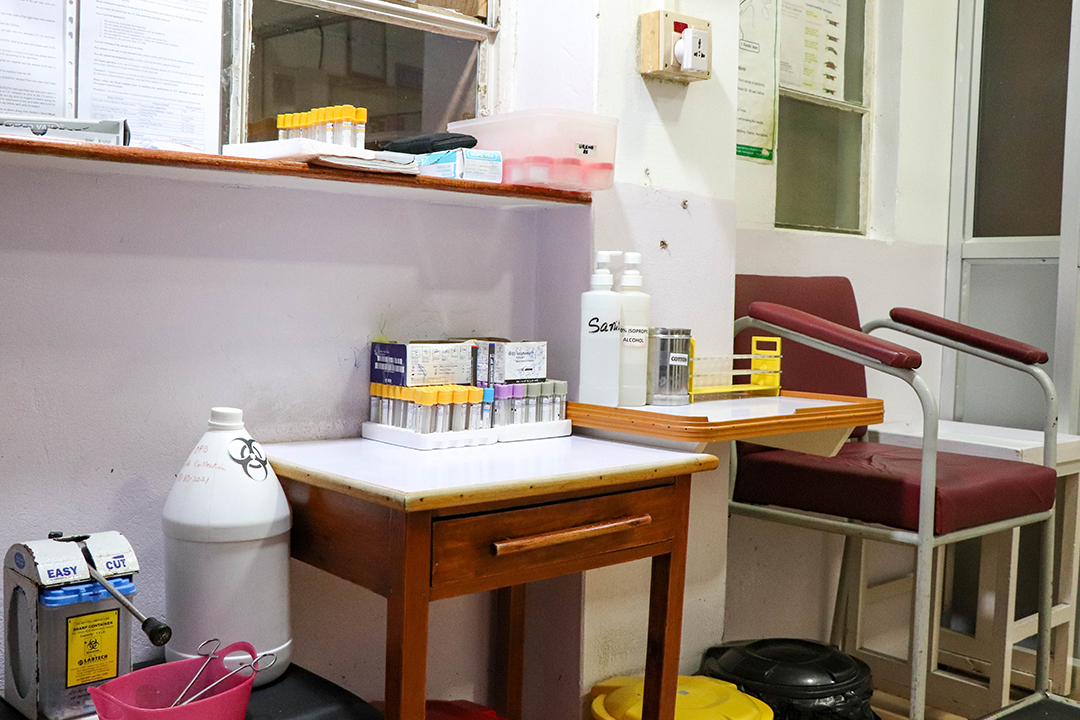
The Nazareth Hospital Blood Bank was established in the year1993, when it was granted its license (License No.: 3/DL/MGF). It caters to the needs of the residents of the city as well as to the needs of the surrounding districts too. Standards in the techniques used and quality control are rigourously maintained as laid down in the Drugs and Cosmetic Act, of the Regulatory Authority, Director Drugs Controller (India), Ministry of Health & Family Welfare, Government of India.
Aims :
In 1965, the hospital expanded into a 60 bedded hospital with OPD, Pharmacy and Laboratory facilities. In 1967, ten more beds were added to the existing number and in 1971, due to the increased demand, another 50 beds were added, making it 120 beds. The Community Health Program, which started in 1970, included Maternal and Child Health, Health Education and Immunization programs. The school of nursing was started in 1979. A new multi-story block was opened in 1997 with the help of MISEREOR, Germany. With this new block the bed strength was increased to 375.
Every year a number of blood donation camps are organized in conjunction with government departments, educational institutions, NGOs, etc. This contributes a large part of the supply. The ultimate aim however is to mobilise the public to voluntarily come and donate blood without the need to conduct camps.
Future objectives are to start component separation to enable better utilisation of this precious commodity.
Basic requirements for blood donation :
A blood donor should:
Be healthy
Be between the ages of 18-60 years
Be weighing at least 45 kg
Have a haemoglobin level of at least 12.5 gms/dl
Not have donated blood in the last 3 months
Who cannot donate blood?
As blood is a potential source of many serious and even fatal infections, the selection criteria is very strict. Also, in some cases, donation of blood may endanger the life of the donor himself/herself. To that end it is strongly suggested that people suffering from the following conditions refrain from donating blood.
Cancer
Bleeding disorders
Seizures
HIV positives or people living with HIV/ AIDS
Hepatitis B & C positives at any point in their life
Sexually Transmitted diseases e.g. syphilis HIV
Intra-venous drug abusers
Frequently asked questions about blood donation :
Is it safe to donate blood?
Yes, it is absolutely safe to donate blood as the methods and techniques used virtually eliminate the chance of transmitting any infection.
Will it affect my health?
No, it will not affect your health. Any person can donate blood, including people involved in hard manual labour.
Will the doctor check me first?
Yes, every donor undergoes a comprehensive physical examination and only if he/she is deemed fit by the doctor will blood be taken.
Isn’t it easier to buy blood from professional donors?
No. professional donors repeatedly donate blood without any regard to guidelines and therefore they may not be healthy and many of them may indulge in high risk behavior, which increases the risk of acquiring infections.
How often can I donate blood?
Every 3 months.
Can I enter the blood bank within the prescribed timings and volunteer to donate blood?
Absolutely. Your donation is very precious and will be welcomed at any time.
Will my patient receive the blood I have donated?
No. All freshly collected blood must be stored at 4-8˚C mandatorily for at least 3 days before it can be issued for transfusion to a patient. There is nothing to worry about, as rest assured your patient will receive safe blood.
After donating blood, can I resume my daily activities?
Yes. After donating blood you will be asked to take a short rest and to have a refreshment. After this, you are free to resume your normal day to day activities.
Is it normal to feel nervous while donating blood for the first or second time?
Yes it is quite normal. There is nothing to worry about as you will be checked thoroughly before blood can be collected from you. If there is any problem, you will be informed about it by the doctor.
Procedure of donating blood :
It is an extremely simple procedure. When you enter the blood bank, you will have to go through the following steps:
You will be registered where all your details including weight will be recorded.
You will have to undergo an examination by a doctor.
You will have to give a small preliminary sample so that your blood group and haemoglobin can be checked.
If everything is found to be acceptable you will be asked to comfortably lie down on a special chair and your blood will be drawn. It takes between 5-10 minutes for the procedure.
After you have donated blood you will be taken to the refreshment room where you will be asked to rest for 10 minutes and be provided with a healthy light refreshment.
Remember that the blood you donated could have helped save a life
“Safe Blood starts with me, donate blood voluntarily”


